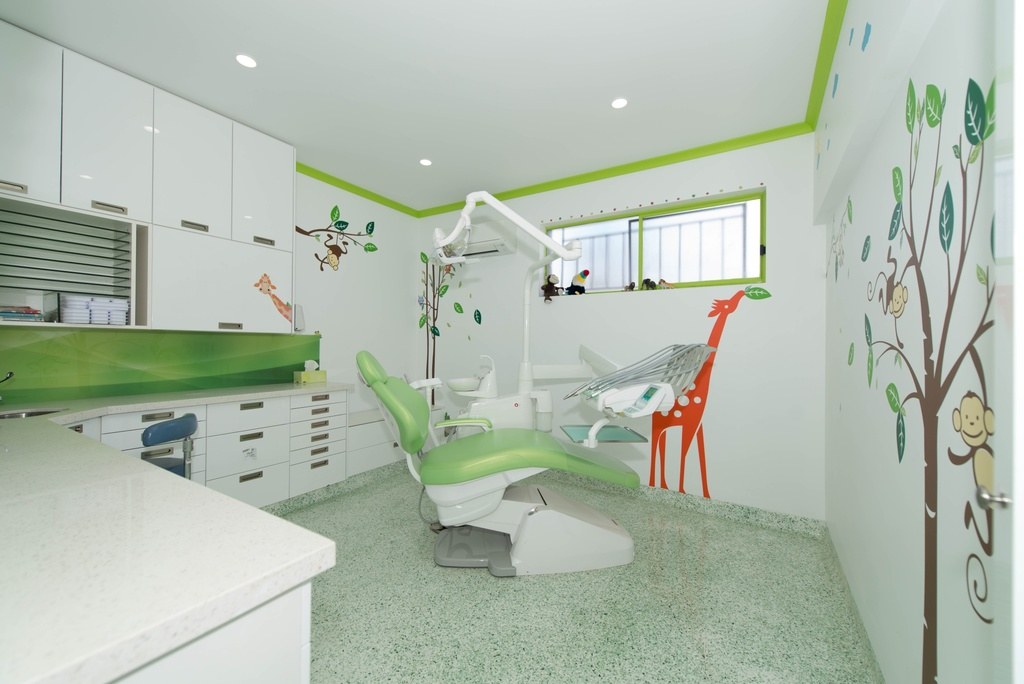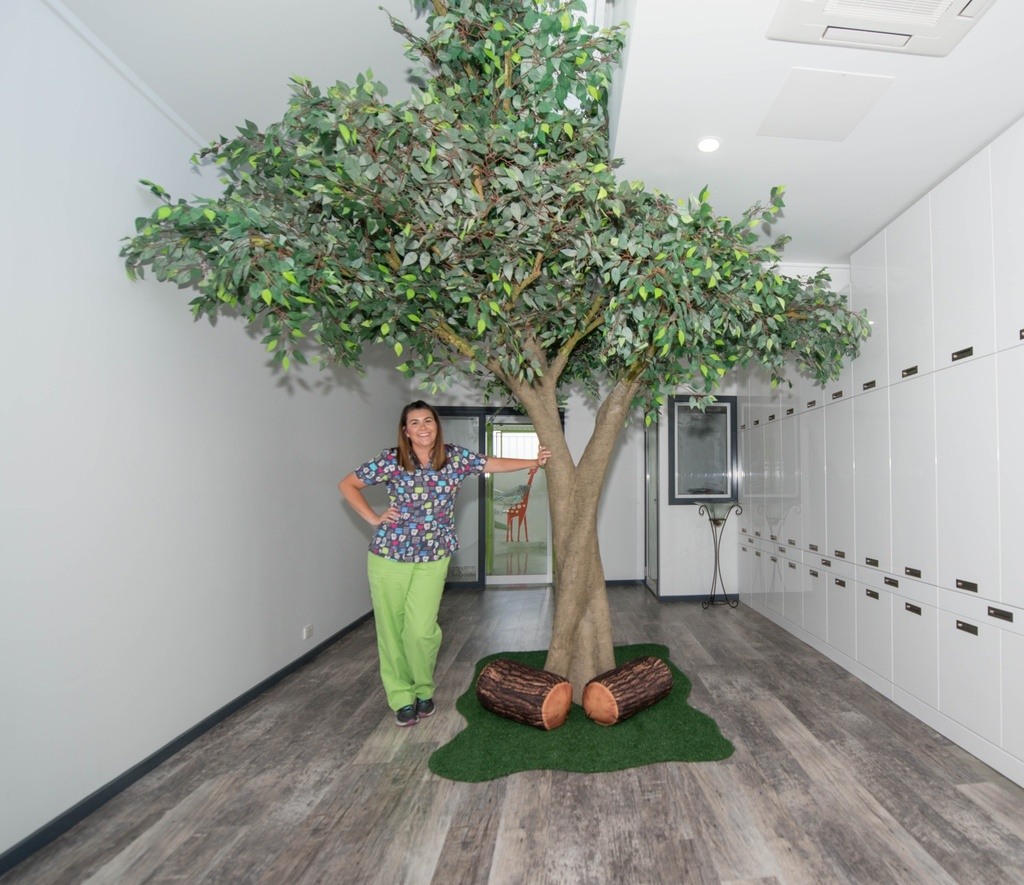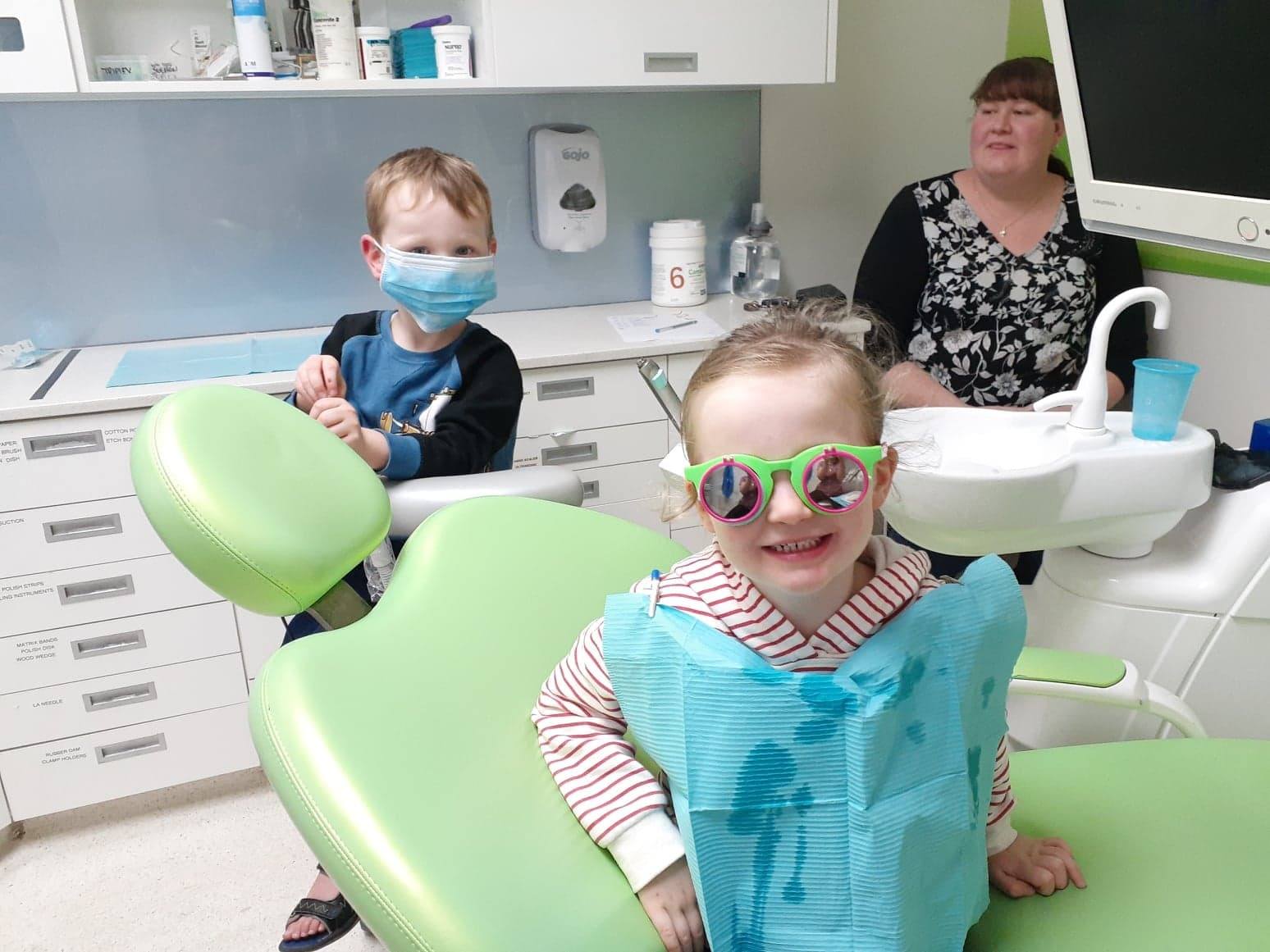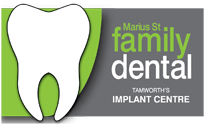My child's first dental appointment
When should I bring my child in for their first check up?
It might sound crazy at first but hear us out. We recommend seeing you when you are still pregnant with your child. Why? Research shows that the way that children get the bad bacteria that causes decay is actually through vertical transmission – which means it is passed from the mother’s saliva to the child (kissing, sharing spoons, tasting their food, etc).
This means that if your mouth isn’t healthy and you have high levels of bad bacteria, these will infect your child’s mouth once they are born – even before they have teeth! So once their baby teeth come through, they’re immediately exposed to these bacteria and the acids they produce. We want to limit this as much as possible by getting your bad bacterial count as low as possible by removing any decay and calculus, having awesome oral hygiene and limiting foods which allow these bacteria to thrive. The other important things is to teach you how to take care of your new child’s mouth as children can’t properly brush their teeth until they are 6 years old.

Timeline
Baby: If your baby is having difficulties feeding or maintaining suction, we recommend bringing them in to check for tongue-tie.
First Birthday: First dental check up! Generally we recommend 6 months after the first tooth has erupted. Bringing your child in from an early age will help them become familiar with us and the environment and make future appointments much easier. We recommend seeing children every 6 months due to how quickly decay in childrens teeth spreads. We can assess their decay risk and if they are low risk, we will let you know and we can see them once a year instead.
1-5 years old: Dental check-ups every 6 months are the best way to catch things early. If we find something quickly, the treatment is much simpler and less stressful for the child (and saves you money!). We can let you know what areas are being missed during cleaning and show you specific techniques to get to those spots. By preventing the need to for big treatment on children, we reduce the risk of them having a bad experience and becoming afraid of going to the dentist. If your child is snoring or mouth breathing, we should try to find the cause early before it becomes an issue.
Many times the check-up only involves using mirror and air. If the child is very young, we often do a 'lap exam' where we get the child to sit on the parents lap and we look at their teeth from there, so that they feel safe and secure without needing to be separated from you.
5-6 years old. This is a really important check-up time for several reasons.
At 5-6 we can start to check for any subtle signs of developing issues, such as mouth breathing, incorrect swallowing patterns, thumb sucking and more causing un-ideal jaw development. Early intervention can reduce the need for future orthodontic work. Read about this on our myobrace page.
It is also the time that we prepare you for adult teeth coming through! At 6, the permanent teeth begin to come through and we can screen for abnormalities. We can also give you an idea for what to expect, what is normal and what may be signs of a problem.
From 6 years old, most children have the manual dexterity to brush their own teeth (though they should still be watched, otherwise they will probably do it in 10 seconds!). This is when we need to use the good relationship that we have formed with the child to then start to get them to take on the responsibility for their tooth cleaning. They can also start to use adult toothpaste.
If the child is at higher risk of decay, or has tooth anatomy/development that is more prone to decay, we may consider putting fissure sealants on their permanent first molars to protect them from decay as the child grows up.
9-10 years old. Many of the permanent teeth have come through now. This is the time when we check how the canines (eye teeth) are going and take a big x-ray of all of the teeth so we can look at the permanent teeth. At this age we can often see what their adult smile will look like and give you advice on any need for orthodontic treatment.

1. What to do before your childs first visit
We will do our best to make sure your child dental visit is as fun and enjoyable as possible. However, we need your help by:
- Brushing your childs teeth before their dental visit, so we can better assess their oral hygiene. Please bring their tooth brush with you.
- Explain in advance to your child what they should do at the dentist - such as open their mouth. Consider a small reward for your children’s good behaviour.
- Take time to play “dentist” with your children at home. Practice, let your children open their mouth and brush their teeth for them. This helps your children get used someone touching their teeth.
- Read your children a story about visiting to the dentist.
- Speak positively about a dental visit. Whilst it’s not the same as a visit to the local amusement park, they do get to have a ride (the chair goes up and down, back and forth).
- Keep your own negative feelings of dental visit in check (if you have any). Do not use negative words like: needle, hurt, pain.
- Let your child look forward to and enjoy his/her first dental visits with the same enthusiasm as a visit to grandma’s.

2. what to expect during the appointment
This depends on their development, personality and dental needs. Each child is different so there is no one way that we do things.
During their first few visits, our main aim is to build a good relationship with your child. We make appointments as fun as possible and, if we can avoid it, don't want to do any invasive treatment. During your childs check-up, we will do the following:
- Meet and greet your child. Make sure they don’t only feel comfortable but also have a fun in his/her first dental visit. Introduce all the toys we have such as “tongue kiss” “auto Robot chair” and how the sucking straw works. Your children will have an opportunity to touch the machine. We have many techniques just for kids, like "show and tell" to get them familiar with everything we use. It's fun to visit the dental clinic!
- Encourage to form correct brushing and oral habits in early child hood. We will demonstrate and reinforce the correct way of brushing and give them their own toothbrush. We want them to take pride in their pearly whites!
- We will examine all their teeth to make sure they are healthy. Identifying signs of early decay is vital in children. White patches on the teeth that do not seem to be able to be cleaned off are early stages of demineralization which eventually break down further to form holes much quicker than in adult teeth. Read why.
- We may clean and polish their teeth with a soft rubber polishing cup. This is beneficial as it is fun and gentle, and gets the child used to having dental treatment. We want to start small with little things like a polish and then slowly build up from there.
- Very importantly we will check early signs of any abnormality of your child’s face and jaws including mal-alignment. Identify any early sign of abnormal habits and try to guide your child’s face and teeth to develop in more correct way.
- Individual oral hygiene and care instruction- taking the time to make sure both you and the child are shown how to keep your teeth healthy, and also giving advice on the appropriate amount of fluoride for them, diet and general tips.
- Finally, picking a prize and photo time! We have a treasure box for your child to pick something from after their appointment. We also take a photo of them and print it out to put into their own 'dental photo album' with a note of what they got done today, so you can look back on your child's dental journey. We let them decorate the background with stickers and colouring in, which is a great way to keep them occupied in the patient lounge! Taking photos over their years of growing also has the benefit that we can track their dental and facial development.
3. What to do after your childs first visit
It is very important to reinforce the positive aspects of your childs recent dental visit. As you depart you should:
- Certainly reward their good behaviour
- Use positve language to reinforce the positive experience of a dental visit - focus on whatever was the fun part
- Make your children to look forward for next dental visit.
